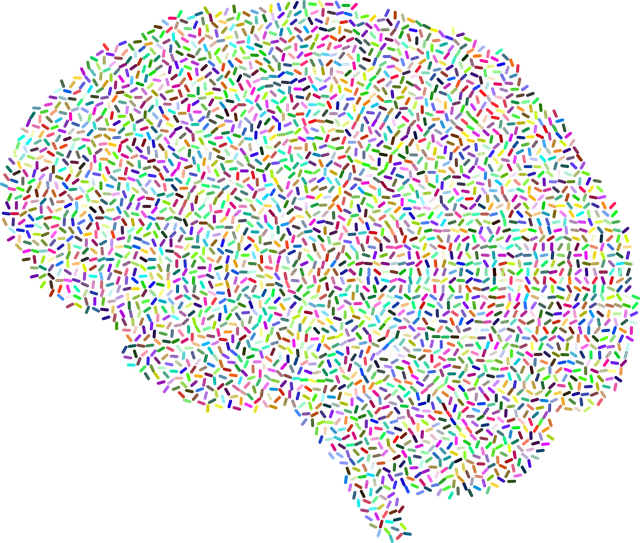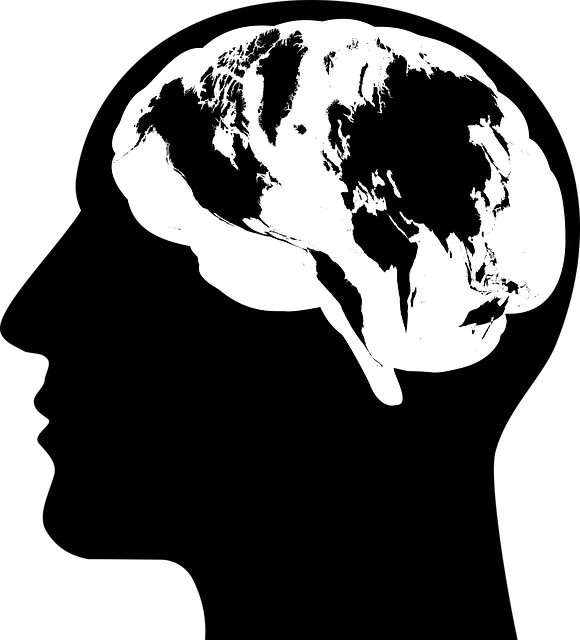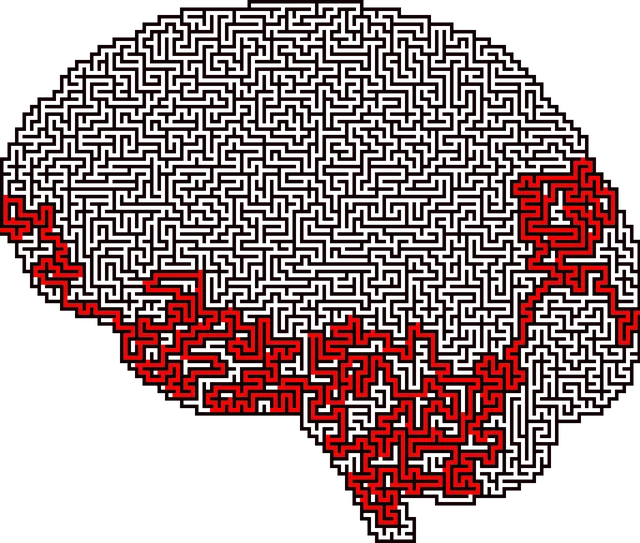The Denver Kaiser Model emphasizes cultural sensitivity as a key component of effective mental healthcare, aiming to create inclusive and compassionate treatment environments in diverse communities. Through training in compassion cultivation, adaptation of therapeutic approaches, and stigma reduction efforts, therapists can provide tailored services addressing unique backgrounds like race, ethnicity, religion, gender identity, and sexual orientation. Denver Kaiser mental health classes equip professionals with the tools to navigate cultural challenges, enhance emotional regulation skills, promote understanding of different practices, build community relationships, and improve access to care, ultimately fostering more culturally responsive and personalized therapeutic experiences. Continuous learning through such programs is essential for maintaining cultural sensitivity in a dynamic healthcare landscape.
In an increasingly diverse society, cultural sensitivity is a cornerstone of effective mental healthcare. Understanding and respecting diverse beliefs, values, and practices can significantly enhance patient outcomes. This article explores essential aspects of cultural sensitivity in mental health practice, drawing from models like the Denver Kaiser Model, which fosters culturally competent therapies. We discuss strategies for identifying and overcoming barriers, incorporating cultural awareness into treatment plans, and emphasize the role of continuous learning to ensure long-term sensitivity, as promoted by Denver Kaiser mental health classes.
- Understanding Cultural Sensitivity: A Cornerstone of Effective Mental Healthcare
- The Denver Kaiser Model: Fostering Culturally Competent Practices
- Identifying and Overcoming Barriers to Cultural Sensitivity in Therapy
- Incorporating Cultural Awareness in Treatment Plans and Interventions
- Continuous Learning and Adaptation: Ensuring Long-Term Sensitivity in Mental Health Care
Understanding Cultural Sensitivity: A Cornerstone of Effective Mental Healthcare

Understanding cultural sensitivity is a cornerstone of effective mental healthcare, crucial for fostering inclusive and compassionate treatment environments in Denver Kaiser mental health classes and beyond. In a diverse society, therapists must navigate different belief systems, values, and communication styles to provide culturally competent care. This involves recognizing and respecting individuals’ unique backgrounds, including their race, ethnicity, religion, gender identity, and sexual orientation. By incorporating compassion cultivation practices into therapy sessions, mental health professionals can create safe spaces that promote healing and understanding.
The ability to adapt therapeutic approaches to meet the specific needs of diverse clients is essential. This might include learning about various cultural contexts, traditions, and practices to avoid unconscious biases or stereotypes. Through Mental Illness Stigma Reduction Efforts, therapists can contribute to creating a more accepting society where individuals feel empowered to seek help without fear of judgment. By embracing cultural sensitivity, Denver Kaiser mental health classes equip practitioners with the skills to offer personalized care that enhances clients’ well-being and fosters positive outcomes.
The Denver Kaiser Model: Fostering Culturally Competent Practices

The Denver Kaiser Model is a renowned framework that emphasizes the importance of cultural sensitivity and competent practices in mental healthcare. This model encourages professionals to embrace diverse cultural perspectives, ensuring that services are tailored to meet the unique needs of each client. By fostering an environment of cultural competence, mental health practitioners can offer more effective support, especially when working with communities from various ethnic and socio-cultural backgrounds.
Denver Kaiser mental health classes often focus on enhancing emotional regulation skills among participants, which is a key aspect of addressing cultural sensitivities. These classes promote understanding and respect for different cultural practices related to emotional expression and coping mechanisms. Additionally, the model promotes community outreach program implementation, allowing healthcare providers to build strong relationships with local communities. Through these initiatives, mental health professionals can improve access to care, reduce barriers, and facilitate better conflict resolution techniques, ultimately providing more inclusive and culturally responsive services.
Identifying and Overcoming Barriers to Cultural Sensitivity in Therapy

Many therapists struggle with identifying and overcoming barriers to cultural sensitivity. These obstacles can stem from a lack of awareness or understanding of diverse cultural practices and beliefs, leading to potential misunderstandings and miscommunications during therapy sessions. For instance, different cultures may have unique emotional healing processes, which could differ significantly from the therapist’s own framework. This disconnect might hinder progress and create a safe but uncomfortable environment for clients.
Overcoming these barriers requires continuous learning and self-reflection. Denver Kaiser mental health classes offer valuable resources for therapists seeking to enhance their cultural sensitivity. Through these classes, healthcare providers can learn burnout prevention strategies, such as mindfulness meditation, to remain present and empathetic throughout therapy sessions. By embracing diverse perspectives, therapists can create a more inclusive space, fostering genuine connections with clients from various cultural backgrounds, ultimately improving the overall therapeutic experience and outcomes.
Incorporating Cultural Awareness in Treatment Plans and Interventions

Incorporating cultural awareness into treatment plans is a vital aspect of providing effective mental healthcare, especially in diverse communities like Denver, where the Kaiser mental health classes offer specialized training to address this need. Healthcare providers must be equipped with the knowledge and skills to navigate different cultural contexts to ensure every patient receives personalized care. This involves understanding not only a patient’s ethnic or racial background but also their social, economic, and environmental factors that influence their mental well-being.
The Denver Kaiser mental health classes emphasize cultural competency training for healthcare providers, teaching them how to adapt interventions and therapies to respect and honor diverse belief systems. This may include incorporating traditional healing practices, addressing language barriers, and considering cultural norms related to communication and family dynamics. Additionally, social skills training and burnout prevention strategies are integral parts of this process, enabling providers to foster strong therapeutic alliances while maintaining their well-being in a field that can be emotionally demanding.
Continuous Learning and Adaptation: Ensuring Long-Term Sensitivity in Mental Health Care

In the dynamic landscape of mental healthcare, continuous learning and adaptation are essential for maintaining cultural sensitivity. The field is continually evolving, with new research and insights emerging that challenge and refine existing practices. Professionals must actively engage in ongoing education, such as those offered by Denver Kaiser mental health classes, to stay abreast of these developments. This commitment to lifelong learning ensures that practitioners remain informed about diverse cultural perspectives, effective communication strategies, and evidence-based interventions tailored to various communities.
By participating in mental wellness podcast series production or engaging with Crisis Intervention Guidance programs, healthcare providers can enhance their ability to navigate complex cultural terrains. These initiatives foster a deeper understanding of implicit biases, promote empathetic interactions, and empower practitioners to deliver more personalized and culturally competent care. Such adaptive practices are crucial for building trust, improving patient outcomes, and fostering inclusive environments within mental health settings.
Cultural sensitivity is no longer a choice; it’s an imperative in modern mental healthcare. By adopting practices inspired by models like the Denver Kaiser Model and continuously learning, professionals can create inclusive environments that respect diverse beliefs and experiences. Overcoming barriers through awareness and tailored interventions ensures effective treatment for all individuals, regardless of their cultural background. Engaging in Denver Kaiser mental health classes and similar training programs is a proactive step towards fostering culturally competent practices, ultimately enhancing patient outcomes and building stronger communities.






